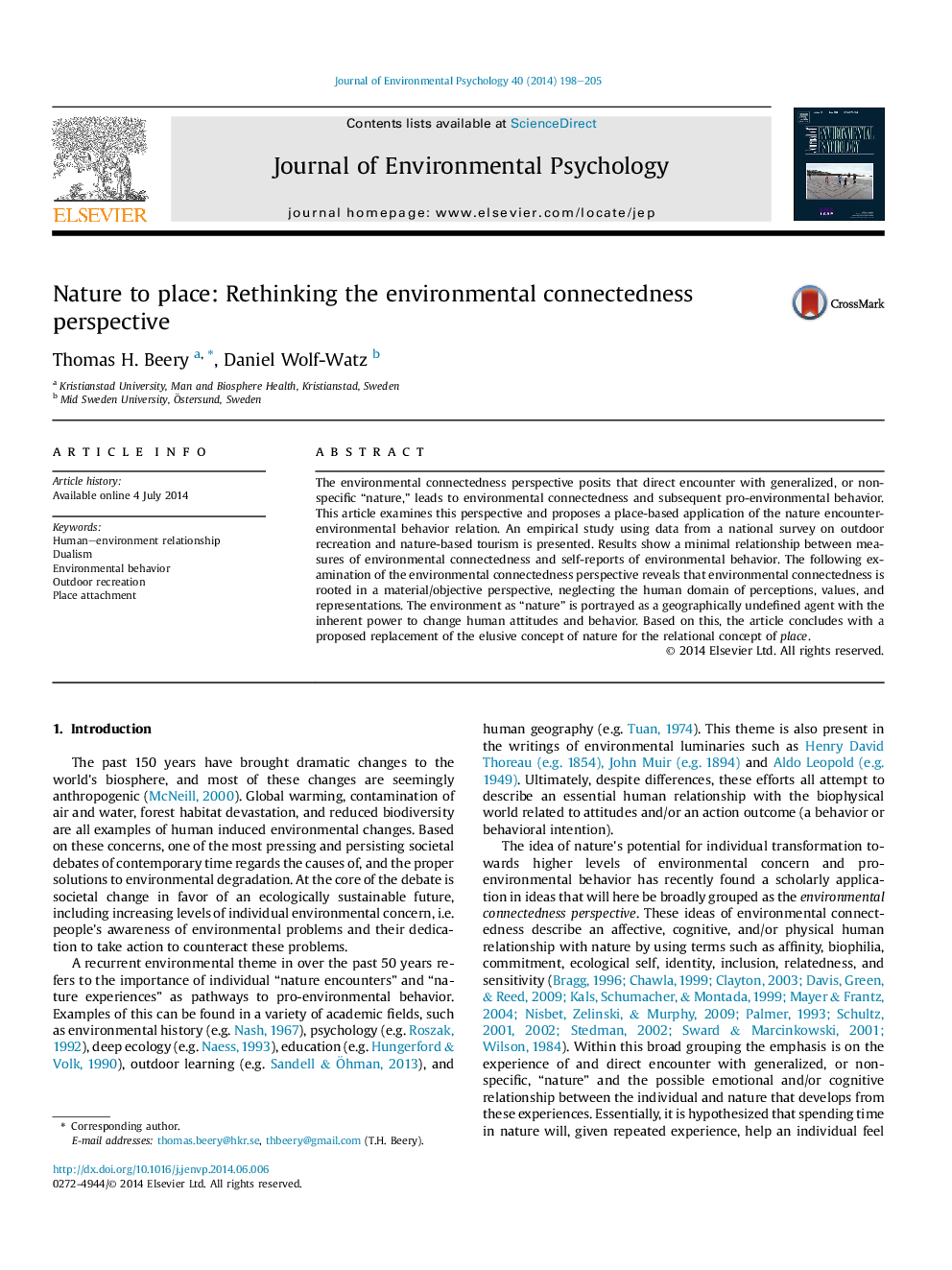| Article ID | Journal | Published Year | Pages | File Type |
|---|---|---|---|---|
| 7246087 | Journal of Environmental Psychology | 2014 | 8 Pages |
Abstract
The environmental connectedness perspective posits that direct encounter with generalized, or non-specific “nature,” leads to environmental connectedness and subsequent pro-environmental behavior. This article examines this perspective and proposes a place-based application of the nature encounter-environmental behavior relation. An empirical study using data from a national survey on outdoor recreation and nature-based tourism is presented. Results show a minimal relationship between measures of environmental connectedness and self-reports of environmental behavior. The following examination of the environmental connectedness perspective reveals that environmental connectedness is rooted in a material/objective perspective, neglecting the human domain of perceptions, values, and representations. The environment as “nature” is portrayed as a geographically undefined agent with the inherent power to change human attitudes and behavior. Based on this, the article concludes with a proposed replacement of the elusive concept of nature for the relational concept of place.
Related Topics
Social Sciences and Humanities
Psychology
Applied Psychology
Authors
Thomas H. Beery, Daniel Wolf-Watz,
